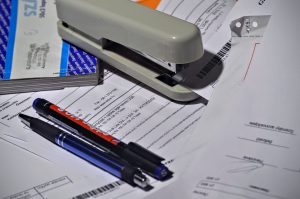Until September 2017, the only way of getting basic DBS checks in England and Wales was to go through Disclosure Scotland. But for the last year, the DBS has been taking over the responsibility from their Scottish colleagues. Now, individuals can apply directly through DBS. Although the system has just celebrated its first birthday, thousands of people have already applied for their basic DBS checks. So if you’re thinking of joining them, here’s what you need to know.
What are Basic DBS Checks?
 There are three levels of DBS check. These are the sorts of checks which were previously called Criminal Records Bureau, or CRB checks. A basic DBS check is the least detailed level of checking. A certificate will show cautions and convictions on the police computer which are not marked as “spent” under the Rehabilitation of Offenders Act. The other levels of checks are enhanced and standard. These types of checks are more detailed and will show older convictions and cautions. Standard and enhanced disclosures can only be done for certain occupations. If, for example, you want a career in teaching or healthcare, you’ll have the most detailed level of checks. Employers will organise these checks for you. A basic DBS check is therefore a great way of checking what employees are telling you about their current criminal records.
There are three levels of DBS check. These are the sorts of checks which were previously called Criminal Records Bureau, or CRB checks. A basic DBS check is the least detailed level of checking. A certificate will show cautions and convictions on the police computer which are not marked as “spent” under the Rehabilitation of Offenders Act. The other levels of checks are enhanced and standard. These types of checks are more detailed and will show older convictions and cautions. Standard and enhanced disclosures can only be done for certain occupations. If, for example, you want a career in teaching or healthcare, you’ll have the most detailed level of checks. Employers will organise these checks for you. A basic DBS check is therefore a great way of checking what employees are telling you about their current criminal records.
Applying for Basic DBS Checks
The process for getting basic DBS checks is very straightforward. It can be split into three main steps.
- Fill in the application form online.
- Prove your identity.
- Let the DBS do the checks and wait for the certificate to arrive.
Let’s take each step one by one. First, the application form. The easiest way to apply for a CRB check, now known as a DBS check, is to get online. You can access the form at any time of night or day, and the website won’t let you submit until you’ve completed the compulsory fields. We’re also here to help you with any queries you have about the process, or how to answer the questions. We’ll also proof read it for errors before it goes off to the DBS.
The next part of the process is proving that you are who you say you are. Show your passport, birth certificate, driving licence, utility bills or other documents which verify your address, name and identity. There is a wide range of documents which you can use, depending on your circumstances. We can help advise on what are the best types of documents you can use in your application.
Finally, the DBS will do their checks, using the information you’ve given on your application form. This involves looking at the police records held on you, and putting current convictions on the certificate. For basic checks, that’s as far as it goes. More detailed checks might include older convictions, and police intelligence. The DBS staff then print off a certificate, and send it back to you in the post. Just show that to your employer, and keep it in a safe place. Your employer might want to write down the number of the certificate, but won’t usually take a copy.